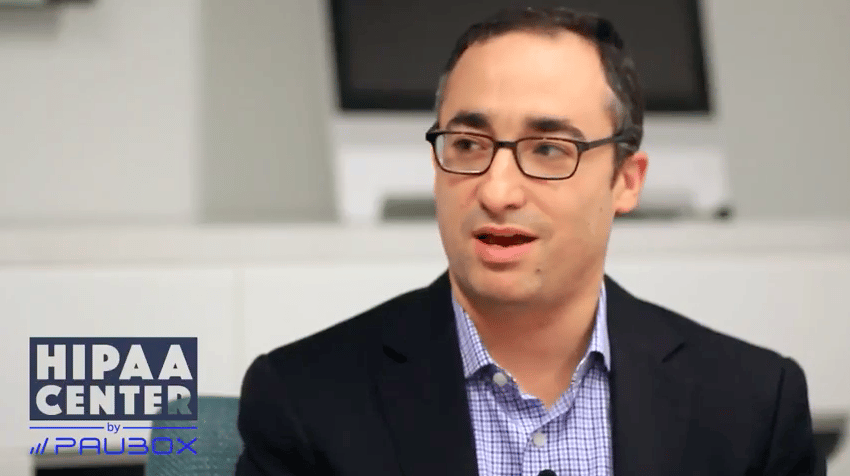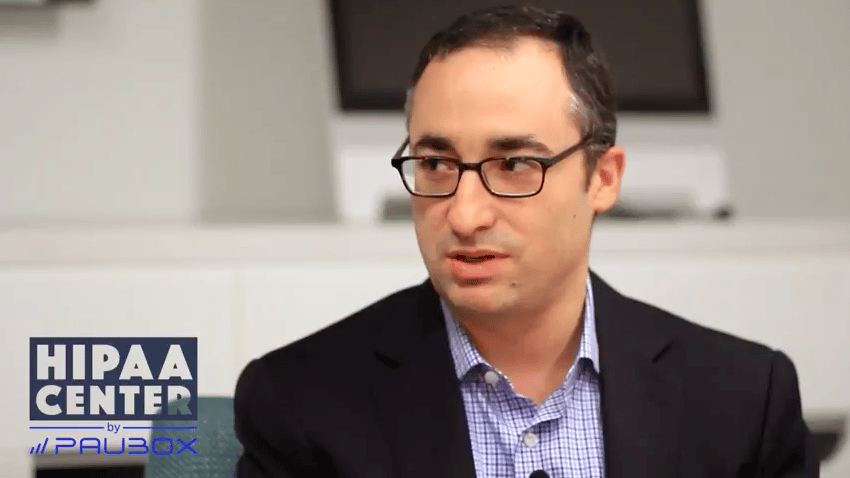
We recently filmed an episode of HIPAA Center with Roger Cohen, Life Sciences Partner at Goodwin Proctor. He is also our HIPAA attorney. During our interview, we talked about a legal precedent he recently set in New York.
Roger Cohen: Setting a Legal Precedent in New York
Here’s the transcript from our conversation: Hoala Greevy: Can you share with us, I understand you set a new precedent in New York by convincing an appellate court to recognize an implied private right of action for healthcare providers under New York's Prompt Payment Law. For those of us who are not attorneys, what the heck is that and maybe an overview?
Roger Cohen: Sure. So New York, like a lot of other states, passed a law that says that health insurers have to pay bills from healthcare providers within a certain amount of time. They passed that law because healthcare providers were having problems getting timely paid. And there's an incentive for insurers to hold back funds. They make interest on the money they're holding and sort of the longer they can spread out the time between getting a bill and having to pay it, the better it is for their business. New York passed this law. [In] one court, one healthcare provider brought a lawsuit against a health insurer claiming the insurer was paying them too low and it violated the law. This court had said, "Well a healthcare provider can't sue someone and recover money for violation of this law. Only the insurance department can enforce this law. You can't bring private lawsuits." We had a client that had a problem with an insurer that owed them a substantial sum of money and they hadn't been paying their bills timely. We didn't think the prior decision was the correct interpretation of the law. We included in our lawsuit a claim that this was a violation of the Prompt Payment Law and we were able to convince the lower court that this other court had got it wrong and that healthcare providers could bring an action under this law. That then went up on appeal and we were able to prevail in the appeals court as well. It's been a powerful precedent for healthcare providers. There's 12% interest under the law per year for late payments and that's an incentive to get insurers to pay in a timely way. It's very difficult when you have a dispute with a health insurer. You sort of start, you say, "You owe me 100 cents," and if that's all you can get, you're going to get less than 100 cents if you settle it, or if you have to litigate it, you're going to run up a bill and walk away with less than 100 cents. So that sort of sets the bar a little higher and gives you a little leverage in the negotiation which is very important.
Hoala Greevy: Sounds like you were able to provide a lot of value to your client and probably a lot of others.
Roger Cohen: We certainly try to do that.
Hoala Greevy: That's great man. We love doing that at Paubox. We're always trying to provide value.
Roger Cohen
Roger Cohen is a Partner in Goodwin’s nationally recognized Life Sciences Practice. He counsels healthcare services, life sciences, and healthcare IT clients concerning compliance with the myriad laws and regulations governing the delivery of healthcare services such as the Anti-Kickback Statute, the Physician Self-Referral Law (the Stark Law), the False Claims Act, the Health Insurance Portability and Accountability Act of 1996 (HIPAA), Medicare and Medicaid rules and regulations, and laws governing reimbursement, licensure and certification. Mr. Cohen’s experience also includes extensive work on healthcare transactions. He has represented clients in acquisitions and financings involving a wide variety of healthcare providers including hospitals, ambulatory surgery centers, physician groups, skilled nursing facilities, rehabilitation and physical therapy facilities, behavioral health and substance abuse treatment providers, dental clinics, home healthcare providers, clinical laboratories, pharmacies, and care management companies, among others. Mr. Cohen also has deep experience assisting clients in transactions involving and providing counsel to health IT companies such as telemedicine providers and electronic health record, mobile health (mHealth), and digital health companies.
SEE ALSO: Roger Cohen: Apple FaceTime and the HIPAA Conduit Rule
Subscribe to Paubox Weekly
Every Friday we'll bring you the most important news from Paubox. Our aim is to make you smarter, faster.

 Hoala Greevy
Hoala Greevy


